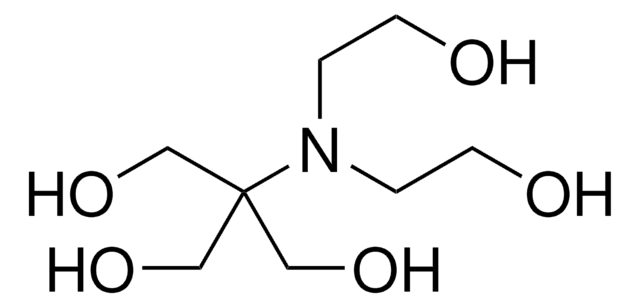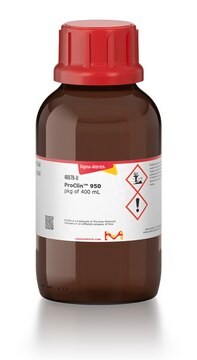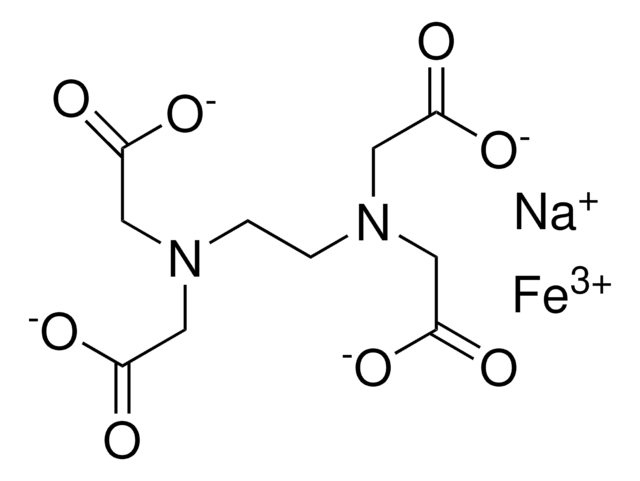B4679
BIS-TRIS propane
BioPerformance Certified, suitable for cell culture, ≥99.0%
Synonym(s):
1,3-Bis[tris(hydroxymethyl)methylamino]propane
About This Item
Recommended Products
grade
BioPerformance Certified
Quality Level
assay
≥99.0%
form
crystals
technique(s)
cell culture | mammalian: suitable
impurities
endotoxin and bioburden, tested
useful pH range
6.3-9.5
pKa (25 °C)
(1) 6.8, (2) 9.0
mp
164-165 °C (lit.)
application(s)
diagnostic assay manufacturing
foreign activity
DNAse (exonuclease), NICKase (endonuclease), RNAse, and protease, none detected
SMILES string
OCC(CO)(CO)NCCCNC(CO)(CO)CO
InChI
1S/C11H26N2O6/c14-4-10(5-15,6-16)12-2-1-3-13-11(7-17,8-18)9-19/h12-19H,1-9H2
InChI key
HHKZCCWKTZRCCL-UHFFFAOYSA-N
Looking for similar products? Visit Product Comparison Guide
Application
- Neutralized chimeric DNA probe for the improvement of GC-rich RNA detection specificity on the nanowire field-effect transistor.: BIS-TRIS propane is used in the development of nanowire field-effect transistors for detecting GC-rich RNA sequences. The study demonstrates the buffer′s role in enhancing the specificity and sensitivity of these biosensors (Chou et al., 2019).
- Elimination of ghost peaks by optimization of anion exchange chromatography method for determination of gamma-carboxyglutamic acid (Gla)-domainless impurity in recombinant activated clotting factor VII drug products.: BIS-TRIS propane is employed in optimizing chromatography methods to eliminate ghost peaks during the analysis of pharmaceutical impurities. The buffer′s effectiveness ensures accurate and reliable detection of impurities in drug formulations (Tahmasbi et al., 2019).
Other Notes
Storage Class
11 - Combustible Solids
wgk_germany
WGK 3
flash_point_f
Not applicable
flash_point_c
Not applicable
ppe
Eyeshields, Gloves, type N95 (US)
Certificates of Analysis (COA)
Search for Certificates of Analysis (COA) by entering the products Lot/Batch Number. Lot and Batch Numbers can be found on a product’s label following the words ‘Lot’ or ‘Batch’.
Already Own This Product?
Find documentation for the products that you have recently purchased in the Document Library.
Customers Also Viewed
Our team of scientists has experience in all areas of research including Life Science, Material Science, Chemical Synthesis, Chromatography, Analytical and many others.
Contact Technical Service








